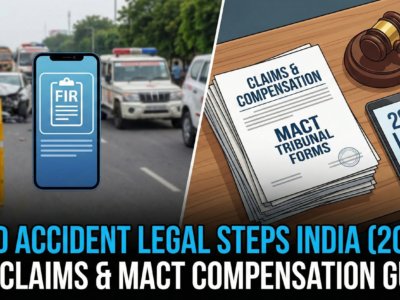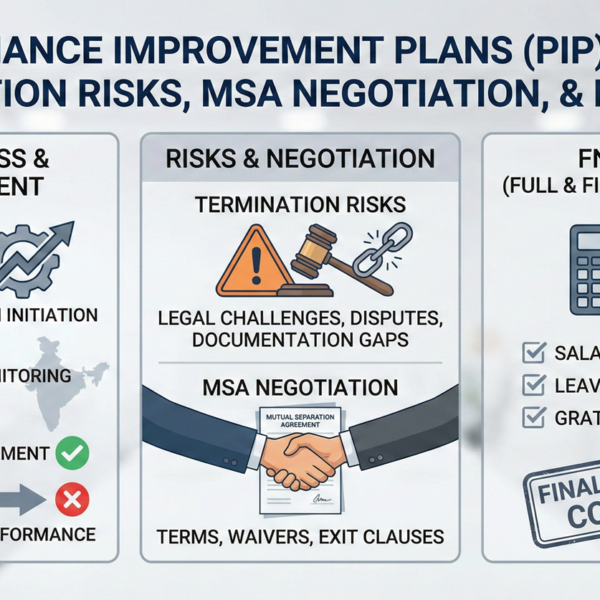The use of a fraudulent document, such as a forged passport, triggers a complex and severe legal response in India. Navigating this treacherous landscape requires a deep understanding of the overlapping statutes, from the Foreigners Act to the Indian Penal Code, and the procedural labyrinth that follows an arrest. This guide provides a comprehensive analysis of the key laws, landmark court rulings, and strategic defenses available, offering crucial clarity for anyone facing these serious allegations.
Deep Dive: The Legal Maze of Fraudulent Documents
Understanding the specific laws and procedures is crucial. Here, we analyze the tripartite legal framework that governs offenses like possessing a fraudulent passport.
The Legal Trinity: Three Pillars of Prosecution
The Foreigners Act, 1946
Defines the person's status as a "foreigner" and criminalizes their illegal entry and stay.
Key Penalty (Sec 14B):
2 to 8 years imprisonment + fine for using a forged passport.
The Passports Act, 1967
Targets the specific crime of defrauding the passport authority by furnishing false information.
Key Penalty (Sec 12):
Up to 2 years imprisonment or fine, or both.
Indian Penal Code, 1860
Applies general criminal laws for forgery, cheating, and impersonation, often with the heaviest penalties.
Key Penalty (Sec 468):
Up to 7 years imprisonment + fine for forgery for cheating.
The Procedural Labyrinth: From Apprehension to Deportation
1. Apprehension & Arrest
Detected at airports, borders, or during police raids. Arrested under the Code of Criminal Procedure.
2. Rights & Consular Access
Accused has the right to a lawyer (including free legal aid) and the right to contact their country's consulate as per the Vienna Convention.
3. Adjudication
Case is tried in criminal courts. Prosecution must prove guilt beyond a reasonable doubt. In some areas, Foreigners' Tribunals may be involved.
4. Post-Conviction
After serving a prison sentence, the individual is moved to a detention center, not released, awaiting deportation.
5. Deportation
A complex process involving nationality verification by the home country. Often stalled due to lack of a formal repatriation treaty.
Landmark Rulings: How Courts Shape the Law
The Procedural Safeguard
Mohammad Musthafa vs. State
This case highlights that even with strong evidence, a conviction can be overturned if police fail to follow mandatory procedures, like getting prior sanction from the government before prosecuting under The Passports Act.
Takeaway: Procedure is as important as substance.
The 'Minority Migrant' Exception
Sanjay Mondal vs. The State
A landmark judgment that quashed proceedings against a Hindu migrant from Bangladesh, linking the case to the protections offered by the Citizenship (Amendment) Act, 2019 (CAA).
Takeaway: Broader political context can influence criminal case outcomes.
The Human Element: Beyond the Law Books
The Cycle of Desperation
Often, these are not master criminals, but individuals driven by dire socio-economic conditions. They may be fleeing persecution, seeking economic opportunities, or trying to reunite with family. Understanding the 'why' is crucial for a just legal approach.
Life in Limbo: Detention Centers
Post-sentence detention can become indefinite, a "prison after prison." With no clear timeline for deportation, individuals can languish for years, facing poor conditions and immense psychological distress, a situation highlighted by human rights organizations.
Strategic Defense: A Multi-Pronged Approach
Challenge Procedure
Scrutinize every step of the investigation. Was the arrest lawful? Was prior sanction obtained where required? Procedural errors can be powerful grounds for dismissal.
Dispute Intent (Mens Rea)
For charges like forgery for cheating, the prosecution must prove a guilty mind. Argue that the accused was a victim of a larger trafficking ring or acted under duress, lacking fraudulent intent.
Invoke International Law
Utilize conventions like the Vienna Convention for consular access and human rights principles against indefinite detention. These can be persuasive in writ petitions before High Courts and the Supreme Court.
Decision Tree: Potential Defense Pathways
START: Accused of Possessing Fraudulent Document
What is the primary law being applied?
Foreigners Act
Is accused eligible under CAA?
YES → Potential Relief
(Ref: Sanjay Mondal case)
Passports Act
Was prior government sanction obtained?
NO → Strong Defense
(Ref: Mohd. Musthafa case)
IPC (Forgery/Cheating)
Can lack of fraudulent intent be argued?
YES → Key Defense
(Disputes 'mens rea' element)
The Double-Edged Sword: Technology's Role
For the Prosecution
Authorities use sophisticated tools: biometric data, AI-powered document scanners, and international databases to detect forgeries and track movements. Digital footprints from social media or messaging apps can become key evidence.
For the Defense
Technology can also be a shield. Forensic analysis can challenge the authenticity of digital evidence presented by the prosecution. E-discovery tools can efficiently sift through vast amounts of data to find exculpatory evidence or procedural missteps by authorities.
Future Outlook: Policy Debates & Potential Reforms
The legal landscape is not static. Ongoing debates in India could reshape how these cases are handled:
- Citizenship (Amendment) Act, 2019 (CAA): The implementation and interpretation of the CAA will continue to affect specific communities, potentially offering a path to citizenship and relief from prosecution for some, while complicating it for others.
- Repatriation Treaties: There is a growing call for India to enter into more formal, bilateral treaties to streamline the deportation process, reducing the burden on detention centers and ending the legal limbo for many.
- Data Protection Laws: The evolution of data protection laws will impact how evidence is collected and used, creating new avenues for legal challenges regarding privacy and surveillance.
Navigating the Complexity
The legal consequences of using fraudulent documents are severe and multi-layered. From the strict letter of the law to the human stories behind the cases, the challenges are immense. Understanding the interplay between immigration law, criminal procedure, defense strategies, and evolving policy is essential for anyone facing these charges. At evaakil.com, we provide the expertise to navigate this complex legal landscape.
Request a Consultation








